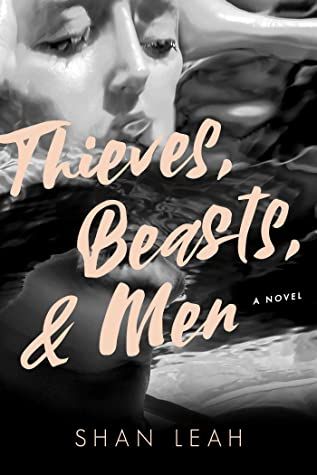|
There are some subjects that grab my attention immediately when it comes to books. And hermitized fiction is one of them. Any protagonist living off the land and away from the loud world and its rude inhabitants works for me. Usually. And so in that respect, among several others, this book worked very well for me.
But then the thing is I also like to emotionally engage with protagonists, conventional as that approach may be, I like them likeable and I can’t say I liked Adelaide very much. You’re supposed to, as a reader, I should think, but she just had this offputting selfrighteousness of the mothermentality (more on this in just a minute) that was…lamentable? But ok, first things first…this is indeed a story of Adelaide, an older woman of indeterminate age who has decided to end her life. This life since the age of 20 has been spent in the middle of the Blue Ridge Mountains, in the woods, in a small offgrid cabin, living mostly off the land. There doesn’t seem to be much to it but tending to the garden, watching nature and conversing with poultry. To each their own, right? Well, sure, but also we learn that Adelaide has a daughter, a product of rape, that she brought into this life and raised in that life, in that cabin, until the age of 16 when the kid said enough and bailed. And now this daughter serves as a sort of yearly supplier of essentials, though there is a town walking distance away. So the self sufficiency is there, but not in its entirety. Even Thoreau took his wash to his mother’s. Despite this failed experiment at motherhood, through a series of bizarre circumstances Adelaide finds herself with two more kids, having taken them away from their mother. To be fair, wherein Adelaide has forgone some trappings of civilization, the kids’ mother has abandoned all of them, living like an animal in the woods and raising her kids accordingly. Adelaide decides she can do more for them, so she takes them in and begins to care for them, in the process offsetting the iffy balance with an evil (and super rapey) local farmer. It stands to reason that like with many wild animals things are best be observed at a distance and not intervened with and despite Adelaide’s road south paving good intentions, her intervention is a disaster and ends in one. And this goes contrary to the book’s theme, which is meant to be Adelaide’s redemption. Second chances are good and great when they work, not when they only serve to highlight the original failure, no? It’s difficult to appreciate Adelaide as a person, a rescuer or as a redeemer, considering her actions. It’s difficult to know what’s right for feral children, in general. In a way, it’s a story about two widely unsuitable mothers who end up imposing their life choices on their children. It’s a thing many parents do anyway, albeit usually more subtly and in more civilized circumstances. I didn’t care for this direction personally, but then again, I don’t love stories of motherhood, especially ones that present it as end all be all propositions. The thing is just as a work of fiction (themes aside) this is actually quite good, especially for a debut. The author writes well, assuredly, her descriptions of characters and the world they inhabit are excellent. There’s even art here, oddly enough (doesn’t seem like a sort of book that would have it), in case the pictures aren’t vivid enough in your mind from words alone. So the overall reading experience is soothing of a mixed bag, but the book is interesting, dynamic and quick enough of a read to merit checking out. Thanks Netgalley.
0 Comments
Leave a Reply. |
AuthorWrite something about yourself. No need to be fancy, just an overview. Archives
December 2023
Categories |

 RSS Feed
RSS Feed
